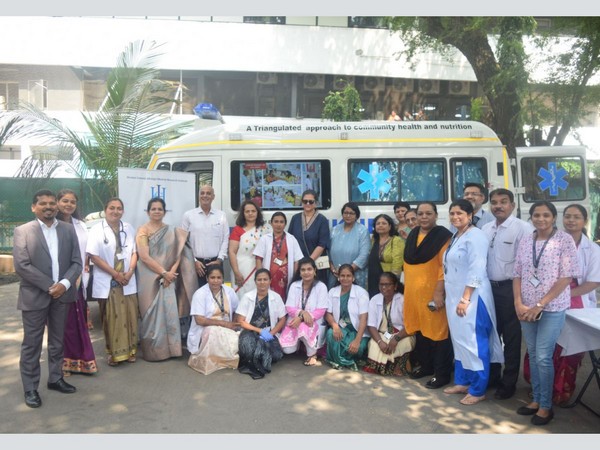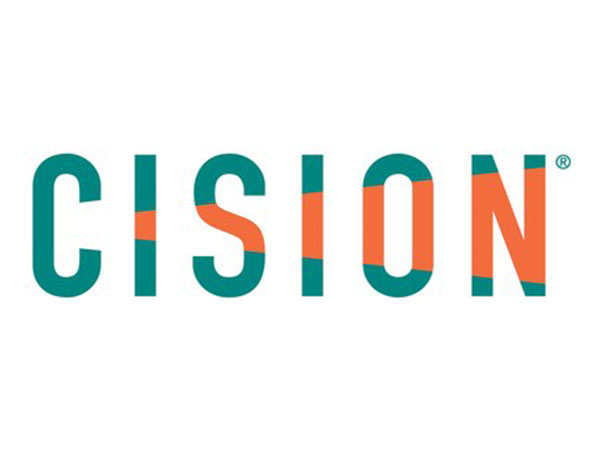Ankur Program Inaugurated at Jehangir Hospital to Combat Non-Communicable Diseases
Oct 21, 2023
PNN
Pune (Maharashtra) [India], October 21: The Hirabai Cowasji Jehangir Medical Research Institute has initiated a project called 'Ankur,' which is supported by Bajaj Finserv under its social impact initiative in Pune city. This project aims to control non-communicable diseases (NCDs) through health screening and growth monitoring of school-going children, maternal and child health monitoring, and scheduled clinics for NCD screening. It also focuses on linking resources for treatment in urban areas of Pune city.
The project began in March 2023 and has, so far, screened approximately 7,000 people, including around 6,700 individuals aged 15 and above, 173 school-going children, 40 anganwadi children, over 100 ANC mothers, and more than 140 patients who have been followed up for treatment.
The project was officially inaugurated at Jehangir Hospital, Pune, on October 11, 2023. The ANKUR mobile clinic was inaugurated by Shefali Bajaj, Chairperson of the Steering Committee of Bajaj Finserv, and Kurush Irani, President of Group CSR at Bajaj Finserv, in the presence of Vinod Sawantwadkar, CEO of Jehangir Hospital, Dr Kalpana Baliwant, the Medical Officer of Health at Pune Municipal Corporation, Dr Uma Divate, Director of HCJMRI, Dr Anuradha Khadilkar, Deputy Director of HCJMRI, Leena Rajan, Deputy National Lead CSR at Bajaj Finserv, and Yojana Palse, Senior Manager CSR at Bajaj Finserv.
During the launch event, Dr Anuradha Khadilkar, Deputy Director of HCJMRI, provided an overview of HCJMRI's community work, with a special focus on the ANKUR project. Kurush Irani officially launched the program and highlighted various community initiatives supported by Bajaj Finserv's CSR. Dr Kalpana Baliwant, the Medical Officer of Health for the Pune Municipal Corporation, emphasized the significance of preventive healthcare within the community and expressed her delight that institutes like HCJMRI and Jehangir Hospital are now involved in this field. Vinod Sawantwadkar, CEO of Jehangir Hospital, expressed gratitude to Bajaj Finserv and the Pune Municipal Corporation for their support of this program. Sandhya Gaikwad, a senior social worker at HCJMRI, shared some experiences from the stakeholders, and beneficiaries of the program also shared their experiences and appreciation for the dedicated efforts of the HCJMRI team. Local leader Ashwini Landge shared her community experiences with the ANKUR team and extended her best wishes for the continued success of the valuable work carried out by the HCJMRI team.
Why is the Ankur Program Important?
Noncommunicable diseases (NCDs) account for 41 million annual fatalities, which is 74% of the total global fatalities. They contribute to 5.87 million annual deaths, comprising 60% of total fatalities in India. Globally, 17 million individuals die before the age of 70 every year due to NCDs, with 77% of these deaths occurring in low- and middle-income countries. The majority of NCD-related fatalities, specifically 17.9 million deaths each year, are caused by cardiovascular diseases, followed by cancers (9.3 million), chronic respiratory conditions (4.1 million), and diabetes (2.0 million, including deaths from renal disease brought on by diabetes). Over 80% of all premature NCD-related deaths are attributed to these four types of diseases. The use of tobacco products, physical inactivity, harmful alcohol consumption, and unhealthy diets all increase the risk of NCD-related mortality.
Early intervention in behavioral risk factors can prevent metabolic changes like obesity, high blood pressure, elevated blood glucose, and increased cholesterol levels, which can lead to noncommunicable diseases (NCDs). This not only burdens healthcare but also society. Timely detection, accurate screening, proper treatment, and palliative care are essential responses. The life course approach holds that NCDs can be prevented and controlled throughout a person's life by optimizing growth and development. Understanding the biological, behavioral, and psychosocial processes that influence disease risk throughout life offers opportunities for intervention to prevent ill health.
The greatest increase in risk is acquired in adult life; however, risks begin to accumulate much earlier in life. Maternal factors such as diet and body composition will influence the risk of disease before and during pregnancy. Fetal, infant, and childhood nutrition and development will influence the risk of disease thereafter. Taking a lifecourse approach enables the early identification of phenotypes and risk markers, which, in turn, facilitates the development of nutritional and other lifestyle interventions aimed at preventing diseases. According to statistics, over 17% of the Indian population lives in urban slums where the evidence of behavioral risk factors is alarmingly high. Hence, there is a need to prioritize this population for intervention.
Sustainable Development Goal (SDG) 3 on health aims to ensure healthy lives and promote well-being for people of all ages. Under this goal, target 3.4 is to reduce premature mortality from non-communicable diseases by one third through prevention and treatment and to promote mental health and well-being by 2030. Target 3.5 is to strengthen the prevention and treatment of substance abuse, including narcotic drug abuse and harmful alcohol consumption. The Government of India has launched several initiatives and schemes to address non-communicable diseases. These initiatives are designed to raise awareness, provide healthcare services, and promote healthier lifestyles. There is an urgent need to increase the uptake of such programs. Hence, 'Ankur' is the much-needed solution of our times, aiming to combat NCDs through child and maternal health monitoring, along with NCD screening clinics.
(ADVERTORIAL DISCLAIMER: The above press release has been provided by PNN. ANI will not be responsible in any way for the content of the same)








